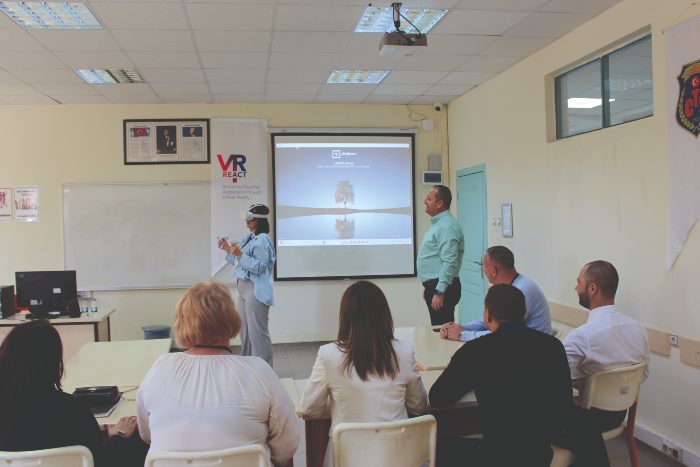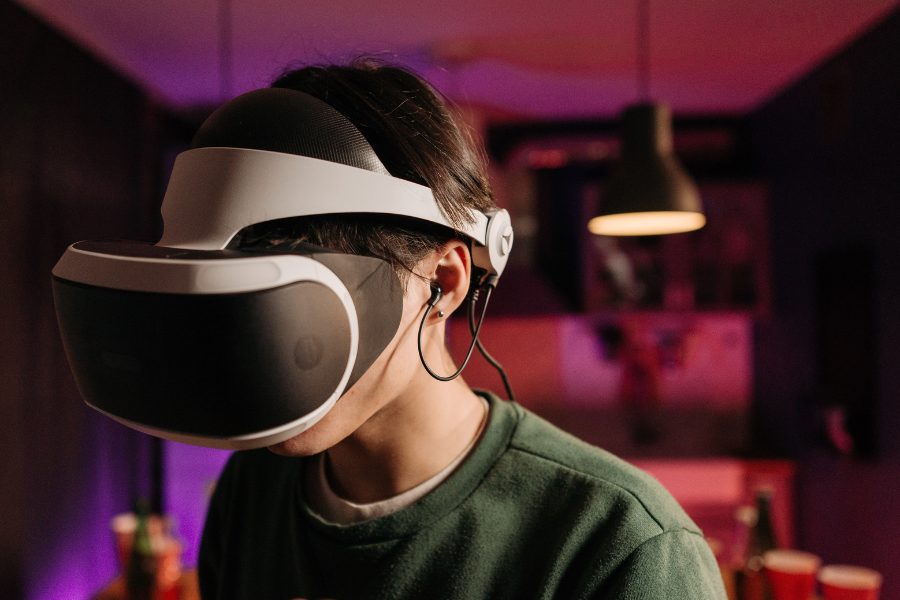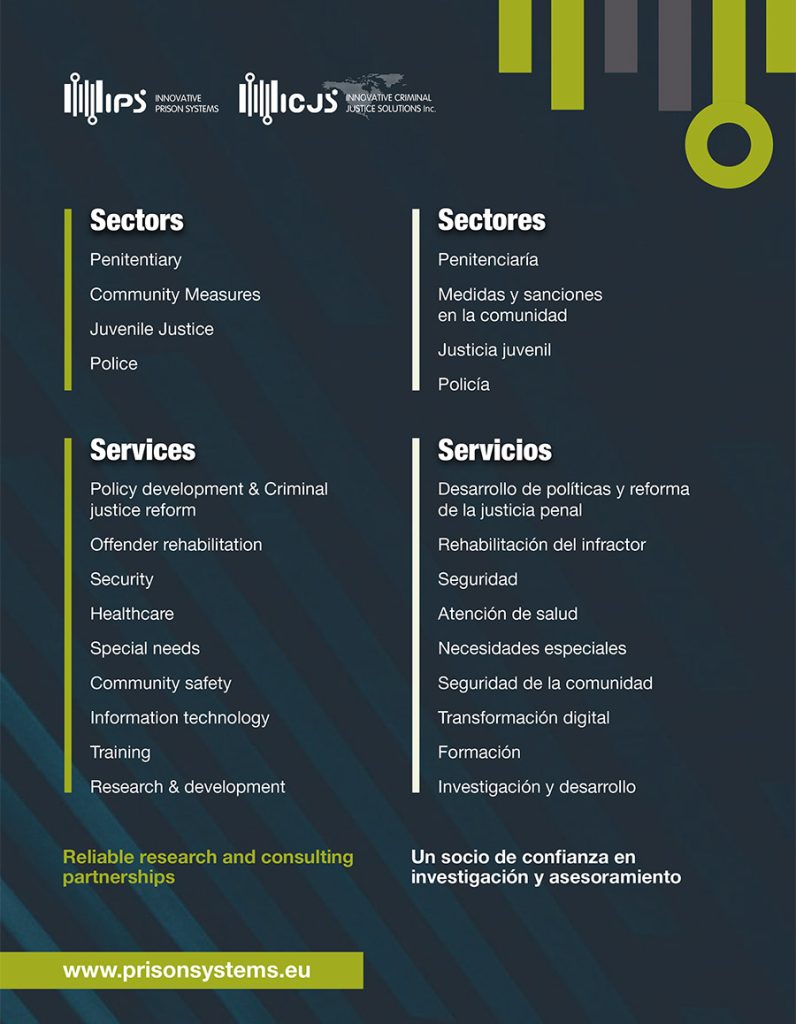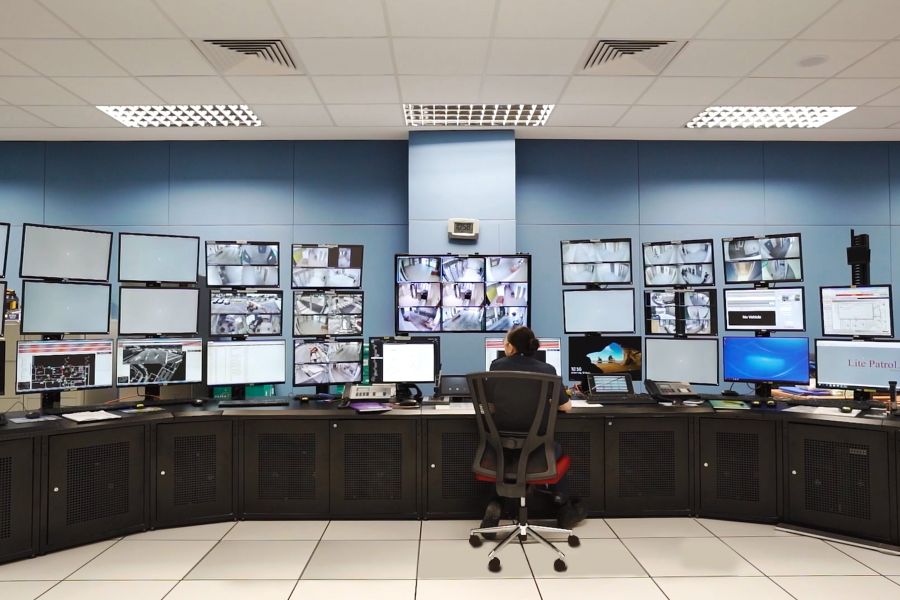Innovation in Practice
Europe
Rehabilitation within the criminal justice system, and successful reintegration in the community, depend heavily on understanding individual factors that influence offending behaviour, imprisonment experiences, and responsiveness to interventions. A key component of this process is the ability to critically reflect on experiences and triggers – particularly those that evoke frustration, anger, or rage.
Many incarcerated individuals have not developed constructive coping skills. Often shaped by early life adversity, they may have learned to react impulsively to stressors, and lack critical decision-making and self-regulation abilities. These deficits contribute to a heightened vulnerability for reactive forms of aggressive criminal behaviour, which persist into adulthood and manifest as decreased cognitive, emotional, and psychological resilience (Sheffler et al., 2019; Vink et al., 2020).
Reactive aggression is a prevalent pattern that is triggered by perceived threats, provocation, or frustration. Instead of stemming from deliberate intent, it is emotionally motivated and usually followed by regret. Within the prison environment, institutional conditions like overcrowding, understaffing, and restricted access to psychological services frequently exacerbate this vulnerability. Unsurprisingly, increased levels of misbehaviour and aggression are closely associated with these environmental stressors (Baggio et al., 2020).
Aggression in prison populations has been acknowledged by the World Health Organisation (2022) as a serious public health concern. Prison aggression is frequently concealed, underreported, and underestimated despite its prevalence and effects (Van Ginneken, 2024; Braga et al., 2019), having serious repercussions that jeopardise safety and rehabilitation initiatives.
To facilitate a successful reintegration and control additional harm, aggression regulation in correctional settings should be a top priority (Butchart & Mikton, 2014; Tuente et al., 2020). However, there is a critical shortage of effective interventions designed for these populations. Hence, creative, scalable, and evidence-based solutions are critical to address this complex issue. Virtual Reality (VR) solutions are emerging as a promising technological rehabilitative intervention tool that combines behavioural change techniques with immersive learning.
Backed by decades of research, VR-based interventions for conduct disorders have received strong support in the literature (Ticknor, 2018; Dellazizzo et al., 2019). Conduct disorders are characterised by persistent patterns of behaviour that violate social norms and the rights of others, often including various forms of aggression, impulsivity, and difficulty with emotional regulation. This makes them particularly relevant when addressing aggressive behaviours in clinical and correctional settings.
Moreover, research has shown that VR enhances self-regulation mechanisms, being an effective treatment tool to lessen the frequency and intensity of anger, supporting individuals to identify triggers, develop impulse control and emotional regulation strategies (Dellazizzo et al., 2019).
Recognising this, the VR4React initiative stands out as a commendable strategy, funded by the European Commission and involving eight European countries: Portugal, Spain, North Macedonia, Moldova, Romania, Turkey, Greece, and Poland. The methodology provides an empirically grounded, innovative approach designed to support individuals with a history of reactive aggression to develop critical skills in emotional regulation to reduce the tendency for impulsiveness and reactive occurrences.
The VR4React programme draws on principles from the Risk-Needs Responsivity (RNR) Model, ensuring a comprehensive and adaptable approach aligned with key correctional frameworks. It is structured to address the needs of both individuals with reactive aggression and the frontline professionals who support them.
Focusing on individuals who’ve exhibited reactive aggressive instances, the offender programme consists of six immersive and interactive VR scenarios in both prison and community settings. These scenarios guide participants through experiences designed to help them recognise, understand, and actively regulate their emotions effectively and autonomously, to improve their emotional regulation strategies. The programme also targets key aspects closely related to reactivity, including stress management, impulse control, and self-efficacy – skills essential for reducing reactive behaviours and promoting constructive coping mechanisms.
Alongside this, recognising the pivotal role of frontline professionals in managing reactive incidents, VR4React also includes a capacity building training programme developed specifically for correctional staff. The training consists of two complementary components: a self paced e-learning course, which introduces theoretical foundations and key concepts related to reactivity and emotional regulation; and a VR training module, featuring three immersive scenarios to strengthen leadership skills, improve stress management, and equip professionals with effective de-escalation techniques.

VR4React’s evaluation approach blends quantitative and qualitative methodologies to assess its impact.
From a quantitative perspective, a structured pre- and post-assessment framework was created to measure indicators of emotional regulation in individuals who had shown reactive tendencies. The objective is to determine statistically significant improvement following the interventions.
In parallel, qualitative data is also being gathered to understand participants’ subjective perceptions of the training – including it’s perceived relevance, practical value, and emotional resonance. This feedback will be useful to inform future adaptions and improvements.
For frontline correctional professionals, the evaluation focuses on knowledge acquisition, information retention, and the utility of fundamental abilities such as de-escalation tactics, stress management, and leadership. Initial results indicate that theoretical knowledge has grown, as has confidence in using these tactics in practical real-world situations.
Crucially, both target groups have shown very high levels of engagement, motivation, interest, and willingness to interact with the VR4React programme. An encouraging sign of the initiative’s potential for long term sustainability and wider impact in correctional settings is this early indication of acceptability and relevance.
The VR4React project represents a forward-thinking approach to addressing the complex issue of reactive aggression within prison systems. According to preliminary findings, this two-pronged approach is not only well-received but also successful in enhancing the capabilities of both target groups. An innovative and scalable approach to issues that have long existed in correctional settings, such as aggression, poor emotional control, and inadequate staff readiness, is provided by the combination of immersive, experiential learning with evidence-based content.
As the project progresses, further analysis will enhance comprehension of its impact and offer vital information for future refinements. ultimately, in line with public safety and social reintegration priorities, VR4React advances the larger objective of creating safer, more rehabilitative prison environments and enhancing long-term reintegration outcomes.
References
Baggio, S., Peigné, N., Heller, P., Gétaz, L., Liebrenz, M., & Wolff, H. (2020). Do overcrowding and turnover cause violence in prison? Frontiers in Psychiatry, 10, 1015.
Braga, T., Rodrigues, A. de C., Di Folca, S. M. S., & Gonçalves, R. (2019). How dark are dark figures? Official and self-report rates of inmate-on-inmate victimization. Victims & Offenders, 14(5), 538–560.
Sheffler, J. L., Piazza, J. R., Quinn, J. M., Sachs-Ericsson, N. J., & Stanley, I. H. (2019). Adverse childhood experiences and coping strategies: Identifying pathways to resiliency in adulthood. Anxiety, Stress & Coping, 32(5), 594–609.
van Ginneken, E. F. J. C., & Wooldredge, J. (2024). Offending and victimization in prisons: New theoretical and empirical approaches. International Journal of Law, Crime and Justice, 77, 100667.
Vink, M., Gladwin, T. E., Geeraerts, S., Pas, P., Bos, D., Hofstee, M., Durston, S., & Vollebergh, W. (2020). Towards an integrated account of the development of self-regulation from a neurocognitive perspective: A framework for current and future longitudinal multi-modal investigations. Developmental Cognitive Neuroscience, 45, 100829.
World Health Organization. (2022). Status report on prison health in the WHO European Region 2022. Copenhagen: WHO Regional Office for Europe.

Inês de Castro is the head of Unit for Risk Prevention and Criminogenic Interventions under the Rehabilitation, Reintegration, and Community Portfolio at IPS_Innovative Prison Systems. Inês is a clinical psychologist with a post-graduation in psycho-criminology (ISPA-IU University). Her expertise, grounded in previous professional experience, focuses on risk assessment, psychological evaluations in a forensic setting and psychological support to inmates. Inês is a certified trainer and has delivered training sessions on topics such as case management and the Risk-Need-Responsivity (RNR) model. She has also co-authored a book chapter on screening and assessment practices in forensic settings and an article on rehabilitation, published in the Prison Service Journal.

Claire Machan is the Rehabilitation, Reintegration, and Community Portfolio Coordinator at IPS_Innovation Prison System. She holds a BSc in Criminology and Psychology (UNSW), a PgCert and Honours in Psychological Science (ACAP), a Master of Forensic Mental Health (Griffith University), and is upon completion of her PhD in Experimental Legal Psychology at UCL. With over eight years of experience as a lecturer and researcher in applied forensic psychology, she has also led educational workshops with HMPPS, MET Police, Victim Support, military professionals, and ex-offenders. Claire is an Expert Member of the ICPA Juvenile Justice Committee, a founding member of the International Working Group on Public Safety & People of Determination, and an active member of international research societies, including EAPL, BPS, APA, and SJDM.



